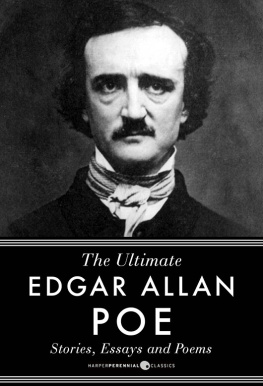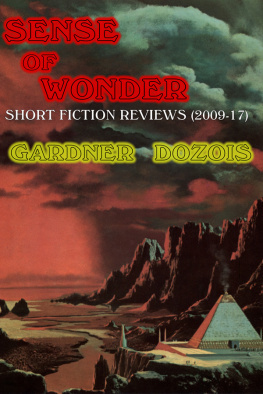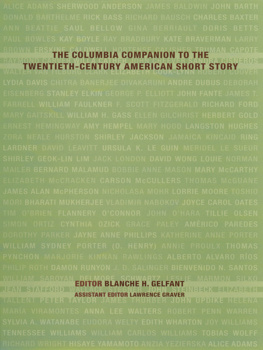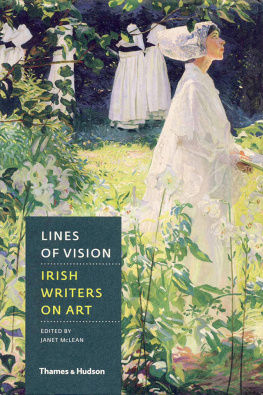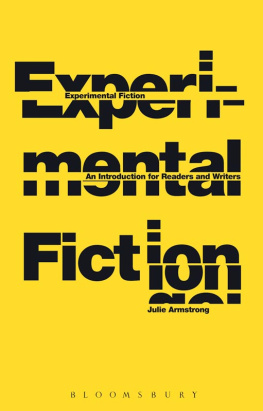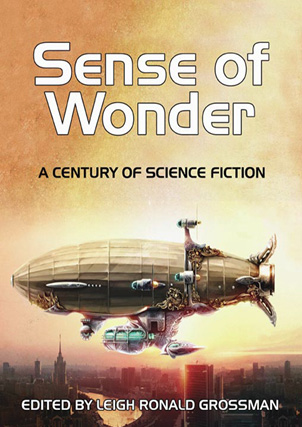
Sense of Wonder
A Century of Science Fiction
COPYRIGHT INFORMATION
Copyright 2011 by Leigh Ronald Grossman except essays, which are copyright 2011 by their listed authors, and stories and poems which are copyright as listed at the end of each selection.
All rights reserved, including the right to reproduce this book or portions thereof in any form whatsoever without the express written consent of the publisher, except for short excerpts in reviews, or as provided by U.S. copyright law.
Cover art copyright Crop / Shutterstock
Cover design by John Betancourt
Interior design by Leigh Grossman
Special thanks to Elizabeth M. Glover
Dedicated to Meg Grossman and Rob Grossman, who made sure to pass on their favorite books to their little brother.
Published by
Wildside Press, LLC
www.wildsidebooks.com
For more information, see:
http://wonder.swordsmith.com
INTRODUCTION, Leigh Grossman
I have a mixed relationship with the giant Norton Anthology-type books that are used to teach many literature courses. On the one hand I love the idea of a single volume that includes most of the key writers in the field. For years I had to assign ten separate books in my science fiction classes and there were still huge gaps and important writers who I never got to teach. Every few years anthologies would go out of print and Id have to scrape together some other combination of books that didnt do quite what I wanted and hopefully didnt cost my students a prohibitive amount.
On the other hand, I do have an issue with the traditional Norton Anthologytype approach: It tends to depict the writers as if they were special creatures touched by the gods, distinct from the rest of humanity. While I think putting the importance of particular works in context is important, Ive always felt (as a writer and editor myself) that that approach was too exclusionary. Its distancing to readers, and largely ignores the relationships between writers, readers, and editors, which in science fiction tend to be particularly convoluted and intertwined. And it does a disservice to students who are themselves aspiring writers, by implying that if they lack some divine spark they can never reach the next level. That approach tends to ignore the level of honing their craft that most writers do (Ray Bradbury talks about the million words one needs to write before reaching that level) and the system of readers and fandom which germinates and supports those writers.
Its easy to get the impression from some literary anthologies that writing is an entirely solitary profession, and that most writers lock themselves in garretts and work in a vacuum. Science fiction doesnt get written that way. Its a small, incestuous, gossipy field and always has been. By and large everyone knows everyone else. People can be amazingly supportive or carry grudges for generations. Drop by the bar at a literary convention and youll run into writers telling stories and kicking ideas around, in much the same way that if you dropped into the right bar in the seventeenth century youd run into Shakespeare and Kit Marlowe drinking and telling stories and kicking ideas around. Ive tried to make this book comprehensive, but also to convey a sense of the relationship between writers, editors, and fans that has made science fiction so distinctive over the last century.
* * * *
Before anyone else, I need to extend a broad thanks to all of the writers who agreed to allow me to reprint their work at rates far below what they deserved, in the interest of making an inexpensive science fiction textbook available to students. Even in a two-million-word book there were a few painful omissions, and a few writers had to be left out because no ebook rights were available.
While I mostly worked directly with writers in securing story rights, I owe a particular debt of gratitude to a number of literary agents. Most literary agents prefer not to represent authors for story sales, since they generally lose money on them. (The payments are far less than the time required to represent their clients.) Sometimes its necessary, as in the case of literary estates where there is no author to work with directly. I am deeply appreciative of all the agents who went out of their way to make sure this book could come together in a way that showcased their clients and remained affordable to students. I especially want to thank Vaughne Lee Hansen of the Virginia Kidd Agency, who has more writers in the book than any other agent but remained cheerful and helpful throughout. Eleanor Wood was involved in the project at a very early stage, since she is the agent for SFWA as well as many writers I wanted to include. That meant extra time getting the boilerplate contracts right and making sure things got off on the right foot. Im grateful to Eleanor and her assistant Maria Leone Karastergiou of the Spectrum Literary Agency. I also want to thank Kay McCauley of the Pimlico Agency; Merrilee Heifetz and Miriam Newman at Writers House; Russ Galen and Ann Behar at Scovil Galen Ghosh; Jane Judd; Katy Loffman at Pollinger, Limited; Diana Finch; Colin Smythe; John Silbersack and Nicole Robson at Trident Media; and Linn Prentis.
Editorial assistants Lauren Cunningham, Sheri Giglio, and Colleen Lynch did yeoman research work during the books last stages, as well as taking on many other small projects that helped make Sense of Wonder a better book.
John Betancourt of The Wildside Press stepped forward and picked up the book when its original publisher backed out of the project. I couldnt have hoped for a more supportive publisher or one who shared my vision any more closely.
Amy Goldschlager and Dennis McCunney made suggestions that helped shape the earliest forms of Sense of Wonder , as it began its evolution from raw idea to its present form. Elizabeth Glover lent both formative suggestions and her design expertise.
Many colleagues at UConn lent support in various ways, particularly Wayne Franklin, A. Harris Fairbanks, Ruth Fairbanks, and Sydney Plum. Richard Bleiler, UConns superb Humanities Librarian, had a wealth of suggestions that helped widen the scope of the book, and contributed an essay on Hugo Gernsback. I am also indebted to Seo-Young Jennie Chu at Queens CUNY for suggestions that strengthened the books poetry component enormously. John Kessel at NC State University and Ayana Abdallah at the University of Houston both made excellent story and author suggestions, in addition to contributing their own work to the book. Don Riggs at Drexel was one of the first contributors and I leaned on him a number of times for suggestions. Likewise Thomas Bertonneau, Kyle Bishop, Laurel Bollinger, Samuel Collins, Sibelan Forrester, Carol Franko, Sonja Fritsche, Andrew Gordon, Darren Harris-Fain, Mack Hassler, Karen Hellekson, Ericka Hoagland, Lee Hobbs, Jay Ingrao, Calvin Johnson, James McGrath, Katherine Pandora, Twila Papay, Amerdeep Singh, Breyan Strickler, and Lisa Swanstrom all helped to improve the book in important ways with their feedback and suggestions above and beyond the expertise they contributed in their essays.
Mike Resnick was the first author who committed to the book, even before I finalized the agreement with the publisher; I went to him for contract advice and ended up with that and much more. John Joseph Adams, Faye Ringel, Stan Robinson, Darrell Schweitzer, Gordon van Gelder, and Michael J. Walsh were enormously helpful in tracking down difficult-to-find writers (in addition to Stans and Darrells own contributions to the book).
In addition to the academic essay contributors, Betsy Wollheim of DAW Books, Toni Weiskopf of Baen Books, Hildy Silverman of Space & Time , Ian Randal Strock of SFScope , and reviewers Dan Kimmel and Tom Easton all generously contributed essays, suggestions, and support to the book.


